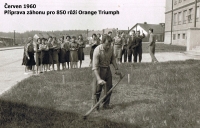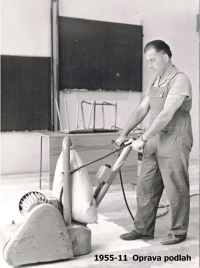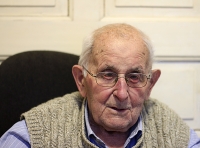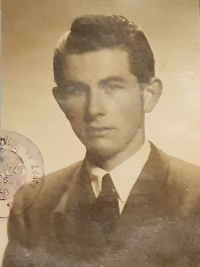The events of that time had a drastic effect on the young man’s soul

Download image
František Svoboda was born on 10 September 1930 in Žďár nad Sázavou. He comes from a poor family. His father worked as a shoemaker, his mother as a seamstress. His grandfather Antonín Svoboda, a veteran of World War I, lived with the family. In 1932, the family suffered a fire in which their house burned down. Subsequently, the economic crisis hit them hard. The situation did not improve even during the war, when fear of the Germans added to the poverty. During the Heydrichiad, their cottage was searched by the Gestapo. At the end of the war František experienced the retreat of the German troops through Žďár nad Sázavou. In 1948 he joined the Communist Party of Czechoslovakia. From the 1950s he worked as a janitor in the Žďár primary school. During the days around the August 1968 invasion by Warsaw Pact troops, his two sons went missing. It took several days before he was reunited with them. In 2021 he was living in his family home in Žďár nad Sázavou.



